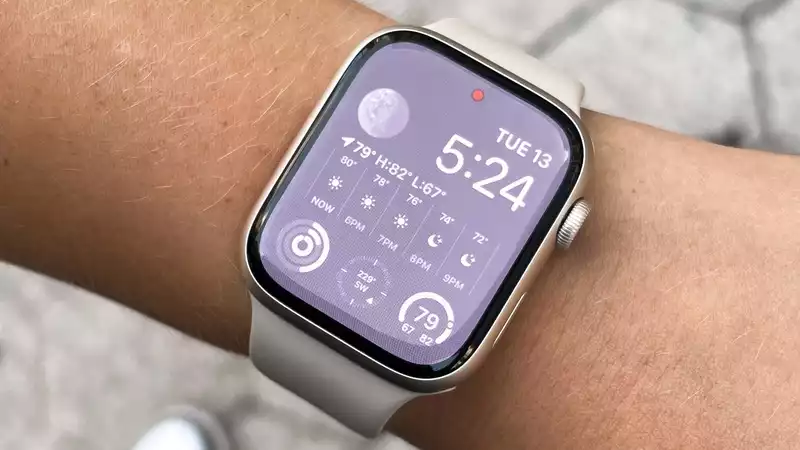Officially, from a medical emergency perspective, the Apple Watch is on the lookout for early warning of atrial fibrillation (AF), abnormal heart rates, and serious falls; you don't have to look very far to find examples of buyers whose lives were saved thanks to the Apple Watch.
But this week, the Apple Watch showed that it may have more medical capabilities than Apple is aware of; the Apple Watch has managed to save yet another life. This time, by a symptom that Apple Watch has not officially detected.
In October, Ken Counihan's Apple Watch alerted him that his breathing was elevated. After an outpatient x-ray, he was prescribed a bronchitis medication, but it was unrelated to his blood oxygen alert, so he returned to the ER.
With his blood oxygen level in the mid-80s, Counihan underwent further testing and this time the doctor found a blood clot in his lung. This was so serious that doctors told him that about 60% of people in his condition would not survive the night.
"As a result, some of my friends went out and bought Apple watches," he told News 5 Cleveland. 'I had dinner with a friend the other night, and he's about to buy an Apple Watch too. It saved my life. It's great."
Meanwhile, studies from Duke University, Northwestern University, and others have shown evidence that the Apple Watch can help predict pain episodes in sickle cell disease patients.
Vaso-occlusive crisis (VOC) often leads to hospitalization of sickle cell patients. Sickle cell can impair circulation and cause organ damage.
However, the Apple Watch 3 (five generations behind the current model) was sufficient to predict the onset of pain in sickle cell patients; from July to September 2021, researchers collected 15,683 data points from 20 sickle cell patients. This data was analyzed by machine learning algorithms, and the most successful model predicted pain with 84.5% accuracy.
"This is a novel and feasible approach and presents a low-cost method that could be beneficial to clinicians and sickle cell patients in the treatment of VOC," the study concluded.
It is amazing what we can learn from the handful of sensors already in the Apple Watch, but this may be just the beginning. We know that Apple has been trying to crack blood glucose measurement for years to help diabetics - which could be a game changer given the current cost of monitoring - but it is potentially only the tip of the iceberg.
In 2021, Apple will be Rockley Photonics' largest customer. The company specializes in sensors that read multiple blood signals without the need for medical equipment, including lactic acid, alcohol, carbon monoxide, blood pressure, blood oxygen, temperature, and glucose.
While it is unlikely that a wearable that can measure all of the above will ever emerge (who knows what the price or battery life will be), it is exciting to think about what can be done by adding additional sensors to a wearable. Given the two examples above, medical purposes may be just the beginning.










Comments